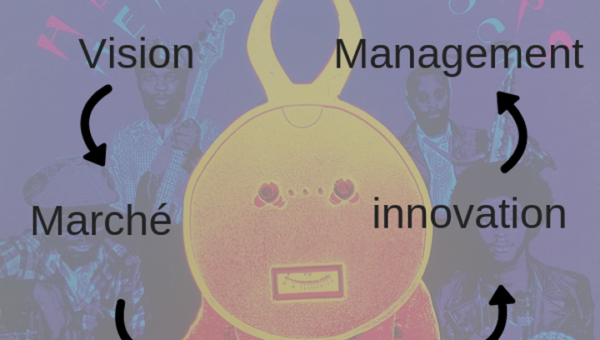We have finally turned the page on 2020 and it’s now official: “The year of COVID-19”, as we will remember it, has deeply transformed how we hire and how we work. A recent LinkedIn study titled “The Future of Hiring – How COVID-19 is transforming hiring” makes several predictions on the implications of these changes on hiring practices for headhunters such as myself, for recruiting managers and for employees.
But 2020 was also the year when, following the death of George Floyd, movements such as Black Lives Matter rose to the foreground, generating a tidal wave of engagement for racial justice and equity.
Through this article, my aim is to extrapolate on the LinkedIn Future of Hiring study to explore whether the trends identified in Europe and the Middle East would also apply in the African context.
To do so, I will first summarize the six predictions made in the LinkedIn study mentioned above. I will then apply these predictions to the African context; testing their validity by leaning on my own expertise of the continent, references to external sources and the view of Africa-based industry experts (see the Focus Interview at the end of this newsletter).
Regarding the future of hiring in Africa, here are the questions I will raise and try to answer:
Will the emerging hiring trends which COVID-19 has generated in other parts of the world transform the future of hiring in Africa? How do cultural factors inherent to employment dynamics in Africa resist these forces? What does this mean for Africa-focused managers and for candidates of African origin? How can you, as a candidate or hiring manager, navigate through this new landscape?
Prediction 1 : “Recruiting will hire less, and build and borrow more”
Summary: Since many recruiting budgets will shrink, L&D (i.e., internal mobility) will play an increasing role in providing companies with the necessary talent to face the present and prepare for the future. In turn, this trend will shift organizational structures away from “specialized units” towards cross-functional teams. For candidates looking to boost their employability, transferable skills, and in particular adaptability, will become the most wanted items, as compared to experience level or technical skills.
Implications in the Africa context:
- (Implication 1) As functions diversify, so will the composition of the teams which will manage these functions. With project teams increasingly spread across departments, continents and therefore cultures, professionals with a multicultural background, previous international experience and a track record spanning different functions or industries will bring the best potential for adaptation in these uncertain times. In this context, professionals within the African diaspora, expats and repats with demonstrated experience in Africa will have a solid edge over their competitors.
You operate on African markets but cannot travel on location to develop new business opportunities? Diaspora professionals can help you bridge that gap through their existing network.
Do you have plans to set up an Africa dedicated unit within your European headquarters and wonder if it makes sense to maintain this strategy despite limited access to these markets? Potential repats can head that transformation as part of a mid-range plan, help develop a business culture of “doing business in Africa” within your HQ teams and eventually, relocate to Africa when travel resumes and business opportunities you converted justify that move.
In the current context of limited international mobility, the opportunities to leverage the experience, skills and network of Africa oriented international profiles are virtually limitless. - (Implication 2) What about on the African continent itself? What role can adaptability play in recruitment and business practices? Here, the very nature of operating in Africa provides the answer; because the dynamics of African markets tend to be more unpredictable, flexibility and adaptation are skills which professionals on the continent have already acquired and apply on a daily basis.
We find a case in point in the way the African continent adapted to change through its response to COVID-19. While many within the international community expected a massive impact of the pandemic on the continent, Africa surprised more than one of us through a high level of innovation, collective action, and resilience to curb the pandemic. See the survey we conducted, and 3rd part of this article named COVID-19, revealing talent and opportunities in Africa
Quote:
“Indeed, from Cape Town to Cairo, many countries have seized the opportunity to combine both existing emergency health care protocols and innovation to improve response effectiveness, from building affordable ventilators to using digital and emerging technologies for tracking and other economic activities.”
Source: Brookings
Resilience and adaptation are soft skills which all professionals operating in Africa develop; the exigencies of unpredictable markets and the result orientation they impose have optimally prepared Africa-based professionals to face the turbulences of our times. And Africa can lead the charge in providing a talent pool of highly adaptable professionals. If some of them lack the technical skills you need, this is the time to develop them as part of a long-term L&D strategy that looks towards the post-COVID future.
Prediction 2: “Recruiting will help keep the business accountable for diversity”
Summary:
Diversity is becoming a “business-critical imperative”. Following the death of George Floyd and the global movement it spurred towards a more diverse and inclusive world, numerous companies have expressed their commitment to Diversity & Inclusion (D&I) efforts. The time has come to transform these words into action.
Here again, the recent evolution of recruitment practices can drive change towards D&I; online recruitment processes have extended the reach of headhunters and recruiters to access talent virtually anywhere on Earth; remote work breaks down geographical barriers, and in the process, removes many of the psychological barriers associated with recruiting outside of our cities, networks, or communities.
But D&I is not simply about quotas and hiring managers will need to go beyond having a diverse staff; they will also have to demonstrate the impact of D&I on the performance of their teams. For that purpose, recruiters and hiring managers will increasingly act as “mentors”, supporting the development of diverse talent within organizations, while helping develop KPI’s and other metrics adapted to diverse teams.
Implications for Africa:
When it comes to Africa, looking at D&I and its future trends on the continent requires to tropicalize our definition of these concepts; for instance, in most African countries, the workforce is made up of various ethnic groups; therefore, the notion of diversity may be approached from an ethnic rather than racial perspective. Additionally, the notion of “white privilege” also differs in an environment where white people, privileged as they may be in the African context, remain a minority. In this sense, the notion of white privilege only applies to a limited group of individuals and is therefore less pervasive than in Europe, for instance.
So…what could D&I look like in Africa?
My prediction is that the most important transformation in that sense will take the form of a greater inclusion of women in decision making roles. In a way, there are two Africa: one is rural, and the other is urban. Urban Africa drives business. Urban Africa is increasingly Western. And in that sense, urban Africa is shaping new and hybrid sets of values and business practices, away from the traditional values which have, in some respects, limited women to more subservient roles. This trend towards further inclusion of women is already evident in areas where Africa leads the way compared to developed countries: for instance, the Africa Faith & Justice Network indicates that sub-Saharan countries to date have had 9 female presidents (out of 54 nations), while France, the USA and other western countries are still waiting for that. Sorry Hilary…
Prediction 3: “Virtual recruiting is here to stay”:
Summary:
Technology, and particularly communication tools have drastically transformed recruiting practices over the past 12 months; breaking down travel limitations, online interviews and recruitment processes initially appeared to be a temporary solution to the COVID context. But as their benefits in terms of cost saving, practicality and speed became evident, many companies have already decided to maintain these practices for the long term.
To do so, companies are now trying to strike a delicate balance between the practical but relatively cold virtual world and the nearness of in-person interviewing.
Implication for Africa:
Over 80% of African businesses are Small and Medium Enterprises (SME’s); in many cases, these family businesses are headed by CEOs who also happen to be company owners. For this reason, African company structures remain essentially pyramidal, with a strong concentration of power at the top. The implication for the future of hiring in Africa? Irrespectively of how diverse teams may become thanks to online recruiting, top management of African companies are likely to maintain the following practices:
- to select candidates that they can situate in the social context where they operate: Who is this person? Who does she know that I know too? What is her reputation within our society? All these factors will continue to weigh heavily alongside the candidates pure competence for the job. This is not a question of preferential treatment: in Africa’s collective societies, every employee can impact the reputation of his employer through his own personal brand. So hiring in this context always involves a high reputational risk.
- to maintain face to face contact with the candidate as a key element of the hiring process; body language, manners, and other image bearing soft skills are difficult to assess online. African hiring managers will continue to favor direct contact to make their final decision.
In that context, can an African SMEs afford to fly a candidate from Brussels or Dallas to assess if he is the right rare one? In many cases no, and the manager will resort to “proximity recruitment”.
What about for junior positions? Is it worth it in terms of ROI? Whenever possible, drawing within the local talent pool of unemployed and qualified African youth is likely to be a better option.
Prediction 4: Recruiters will lead the transition to remote work
Summary:
Without a doubt, the shift towards remote work presents a series of advantages for companies; access to a more diverse talent pool, lower overheads and logistical burdens. But this transformation also generates new challenges such as the harmonization of working practices across regions and time zones, as well as integrated global IT systems.
For recruiters, this shift constitutes an unprecedented opportunity to play a key role in workforce planning. As competition to source talent globally increases, recruiters are increasingly becoming trusted advisers to their clients when it comes to finding the right candidate, wherever (s)he may be. Interacting daily with candidates, recruiters now also have the opportunity to provide “anecdotal evidence” about the wants and needs of this new breed of international remote workers.
Implication for Africa:
Finding the right candidate in the geographic area where he operates is one thing; finding him anywhere on the planet, can be like finding a needle in a haystack. From this perspective, executive search professionals such as myself are playing an increasingly critical role for companies aiming for remote working talent. I have had the opportunity to tackle a similar challenge with an equipment company operating in Africa. The company in question sells heavy construction equipment to distributors and large account customers across the continent. Since a great proportion of these large account customers are Chinese, the company needed to source an Africa expert with expertise in the sector and a solid command of the Chinese language. Through my extended network, I was able to reach members of the African community based in Shenzhen, China and identify suitable candidates.
And when it comes to staff too, a number of social factors will generate resistance to change, in particular regarding remote work.
For many African professionals, working remotely can have a negative impact on their social status and working conditions; “dressing for the job”, driving a company branded vehicle, joining corporate offices downtown, meeting colleagues in professional circles and restaurants during lunch hours are all “percs” and opportunities to assert one’s position within collective societies where reputation and social status matter. For many, working from home also means facing technical difficulties such as poor internet connection, and additional costs such as a greater consumption of air conditioning at one’s own cost; all factors which impact their working conditions, with few positive counterparts. Remote work is therefore a great advantage for companies, but they will have to consider how to make up for what it takes away from their African employees to prevent demotivation and higher rotation.
Prediction 5: Your employer brand will hinge on empathy and actions.
Summary:
As the conversation between employers and candidates shifts online, employer branding becomes essential to attract talent. In particular, companies will need to demonstrate authenticity and social engagement, addressing topics that matter to candidates and society as a whole.
At the same time, recruiters will become the key point of contact between candidates and employers and therefore their role as brand ambassadors will increase.
Implications for Africa:
Considering the socio-economic context in Africa, and the fast growing importance given by employees and executives to social engagement in African cultures, African professionals will favor companies with a “net positive impact” on the markets in which they operate. In our collective societies, joining a company which advances one’s career as an individual at the cost of the good of the community means taking the risk of being ostracized. Companies who have already taken stock of their role within African societies and economies will need to lean on these social actions to communicate what they are about and how they do business, harmoniously blending “doing well with doing good”.
Additionally, African employees want to join companies with which they identify; companies that embrace the globalized world we live in without sacrificing the local and individual identities that make us who we are. In this respect, going glocal instead of going global wil be paramount for Africa-oriented companies. And here again, recruiters will be at the front row to help organizations strike the right balance between their core-values and how these will be adapted to different local environments.
Prediction 6: “Recruiters will build new skills to align with the business”
Summary:
All the shifts mentioned shape a new world of work to which recruiters need to adapt fast. It is not just our geographical reach which has been expanded, but everything else; from the way we source candidates to the types of assignments we take on.
More than ever, this ability to adapt implies investing time in personal development.
Implication in Africa:
As we have seen earlier in this article, in the African work environment hiring decisions remain heavily centralized. However, the growing role which external recruiters will play as advisors to their client may modify this balance of power and in some ways, “democratize” how recruitment is done in the African context.
Will our African CEOs and hiring managers accept to relinquish some of their decision making power? Will they prefer to rely on what we, recruiters, see on a global scale, to inform their decisions at local level? Will the role of the recruiter in the African context shift from external service provider to permanent advisor? I believe so. And I will be back in a few months to share with you how this evolution is taking place in practice.




